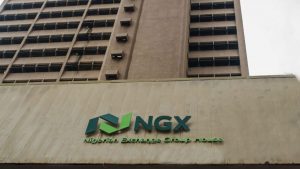Union Bank, Oando exit NGX-30 index, as Wema Bank, BUA Foods join
January 4, 2023497 views0 comments
By Rosemary Iwuala
The Nigerian Exchange Limited (NGX) has disclosed that BUA Foods Plc and Wema Bank Plc have joined the list of most liquid stocks leading to their inclusion in the NGX 30 Index while Oando Plc and Union Bank of Nigeria exited.
Read Also:
This was even as transactions at the floor of the NGX resumed the year 2023 on a positive note as its market capitalisation gained N187 billion.
The NGX-30 index tracks the top 30 companies in terms of total value of equities listed on the NGX (market capitalization) and liquidity.
The NGX in a statement while explaining its results of the full-year review of its market indices, revealed that some changes witnessed in a few of the indicators and added that the review has led to the entry and exit of some companies from several indices that took effect at the opening of the market yesterday.
MRS Oil was included in the oil & gas index, while Oando Plc was also removed. While there was no incoming company in the insurance sector, African Alliance Insurance Plc was removed.
In the NGX Pension index, the NGX added Airtel Africa Plc and BUA Foods, while Honeywell Plc and Conoil Plc were removed.
 In the NGX Lotus Islamic index, NAHCo Plc, NASCON Allied Industries Plc and Presco Plc exited, while Chemical and Allied Product (CAP) Plc joined the league.
In the NGX Lotus Islamic index, NAHCo Plc, NASCON Allied Industries Plc and Presco Plc exited, while Chemical and Allied Product (CAP) Plc joined the league.
Berger Paints Plc was included in the NGX Corporate Governance Index, while no company was removed.
Meanwhile, the consumer goods, banking and the industrial goods sectors remained unchanged.
The indices, according to the NGX, were developed to allow investors track market movements and properly manage investment portfolios. Designed using the market capitalisation methodology, the indices are rebalanced on a semi-annual basis on the first business day in January and in July.
